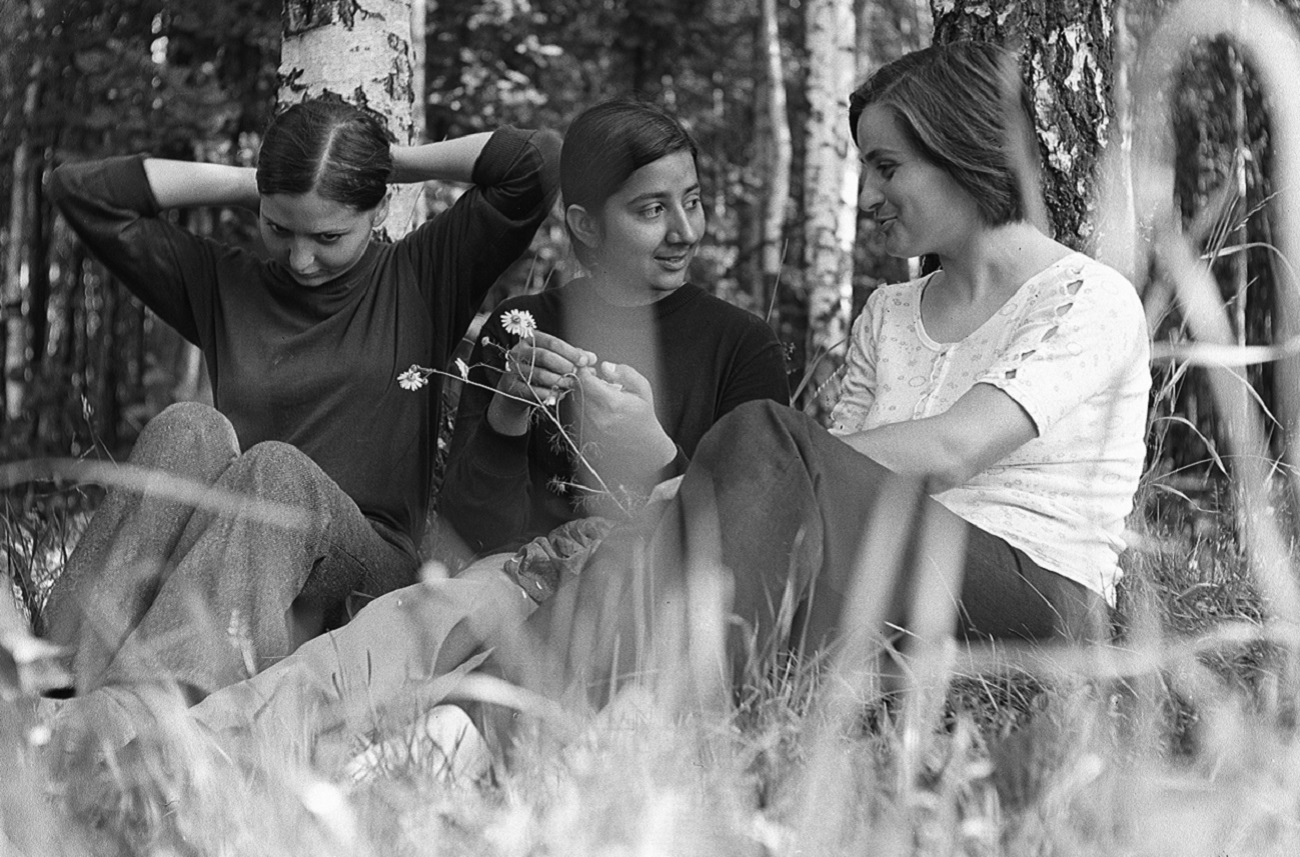
Russians and Indians seem to have a special spiritual connection. Source: Vitaly Karpov/RIA Novosti
Russia’s ties with India are characterised by strong people-to-people relations, and Russians treat Indians like their own “brothers and sisters,” a leading Russian academician said at a roundtable hosted by the Russian State University for the Humanities (RSUH) in Moscow on April 13.
Rostislav Rybakov, Director of the Institute of Oriental Studies of the Russian Academy of Sciences (RAS), made these remarks in a speech on the fundamental bonds between the two nations.
Government officials as well as prominent experts took part in the programme that was held to commemorate the 70th anniversary of the establishment of diplomatic ties between Russia and India.
Speakers at the round table said relations between Russia and India were not only strong at the diplomatic level, but also among the people of both countries, who share deeply emotional friendships that are rooted in strong civilisational commonalities.
“India-Russia relations from the very beginning have been somehow unique and warm-hearted. But what could unite the two countries?” Rybakov asked. “India was a capitalist state, which despite adopting a 5-year planning system, went its own way… From the ideological point of view, India was an absolutely alien country. Still there has been a special link between the people of Russia and India. Russians treat Indians like their own brothers and sisters. What a strange paradox!”
Rybakov added that the people of both countries shared common values, a belief in truth as power and the primacy of the spiritual over the material. He spoke of the “emotional character” of the two nations in the pursuit of justice.
“It is indeed a wonderful occasion, 70 years before, on this day, the 13th of April, before India got independence, the diplomatic relations between our two countries were established,” Deputy Chief of Mission of the Indian Embassy in Moscow G. Balasubramanian said in his opening speech. He emphasized the role played by the Soviet Union in laying the foundation stone for India’s development. The USSR contributed to India’s industrial development, education and defence sectors and the space programme.
Balasubramanian said India-Russia relations were a “model of cooperation.” In 2000, the two countries formally agreed to launch a strategic partnership, which was subsequently upgraded into a special and privileged partnership in 2010. The Indian diplomat mentioned Indian Prime Minister Narendra Modi’s visit to Russia in 2015, when he was welcomed not only by the Russian President and government officials, but also by the public at large.
The Deputy Chief spoke of the fruitfulness of the 2016 Goa Summit, where Modi and Vladimir Putin adopted a roadmap on commemorating the 70th anniversary of the establishment of India-Russia diplomatic ties. In India, various institutions, which cooperated with Russia since 1947, are having special events to celebrate the historical bonds of friendship. A large-scale cultural festival titled “Namaste Russia” will take place in many Russian cities.
Alexander Kozlov, an official with the Russian Ministry of Foreign Affairs said intensive cooperation between India and Russia existed not only on a bilateral level but also within the framework of international organisations such as BRICS, Shanghai Cooperation Organization (SCO), and G20.
According to Alexei Zakharov, a Ph.D. student at the Volgograd State University, relations between Moscow and Delhi are traditionally based on trust. India took a neutral stance during the Ukrainian crisis and did not support international sanctions against Russia. At the same time Russia supports the global aspirations of India, like permanent membership in the United Nations Security Council.
Relations between the two “civilisational friends” were not free of suspicion and misunderstanding at the beginning of Soviet-India diplomatic era, Tatiana Shaumyan, Head of the Centre of Indian studies at the Institute of Oriental Studies (RAS), said. She spoke of Soviet leader Josef Stalin’s acute stance towards the Indian independence movement and the Indian National Congress, which he accused of “colluding with the imperialists.”
In the early Soviet ideological doctrine, Mahatma Gandhi was thought of as an “author of reactionary political doctrine – Gandhism.” Soviet leaders also could not fully accept that Jawaharlal Nehru collaborated with the British and India stayed in the Commonwealth, Shaumyan said.
However, the “ice began to melt gradually,” particularly after Nehru’s USSR trip in 1955 and Raj Kapoor’s triumph of Soviet hearts.
Nowadays, as the whole international power system has changed, Indo-Russian relations are facing other challenges, above all, “mistrust and suspicion often fuelled by the media,” Zakharov said. Moscow’s anxiety over India’s growing cooperation with the U.S. and New Delhi’s concern over Russia’s relationship with Pakistan pose uneasy questions.
Russia and India, being historically strategic and privileged partners in the international arena, are still on their way to constructing consistent and mutually beneficial cooperation. The 70th anniversary of the establishment of diplomatic ties between the two states is a wonderful chance to ponder on the perspectives of our civilisational friendship.
If using any of Russia Beyond's content, partly or in full, always provide an active hyperlink to the original material.
Subscribe
to our newsletter!
Get the week's best stories straight to your inbox